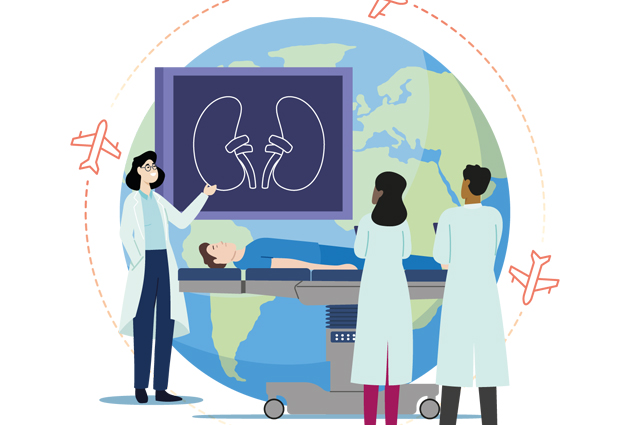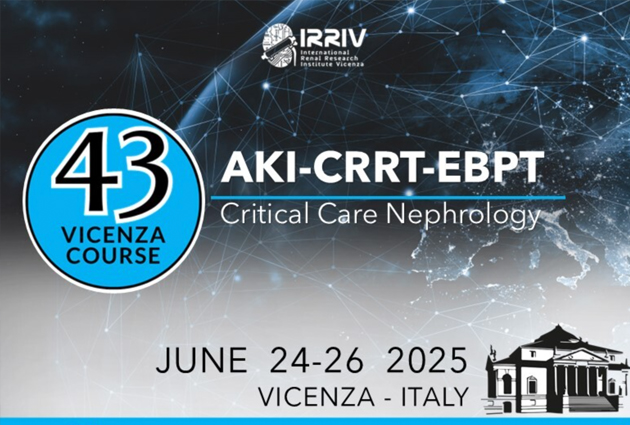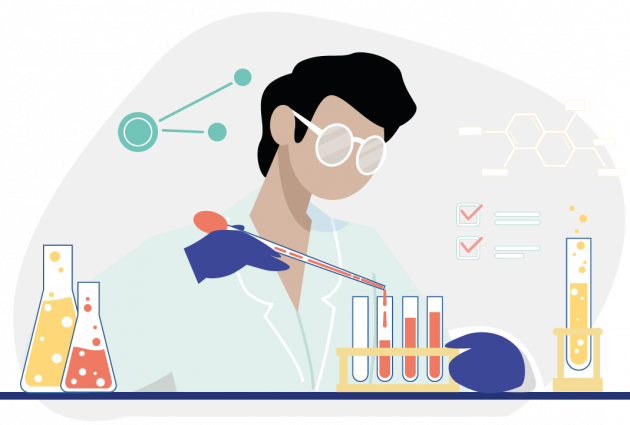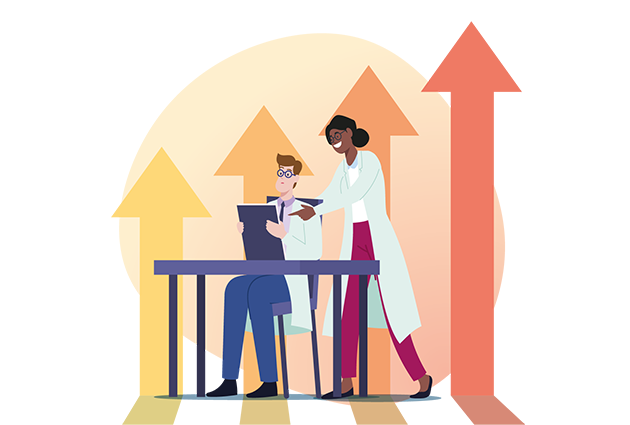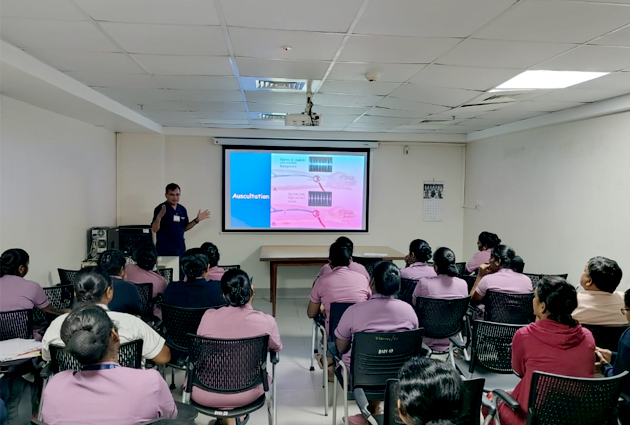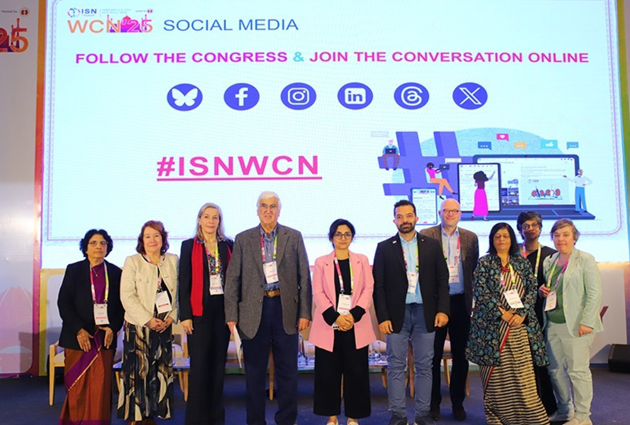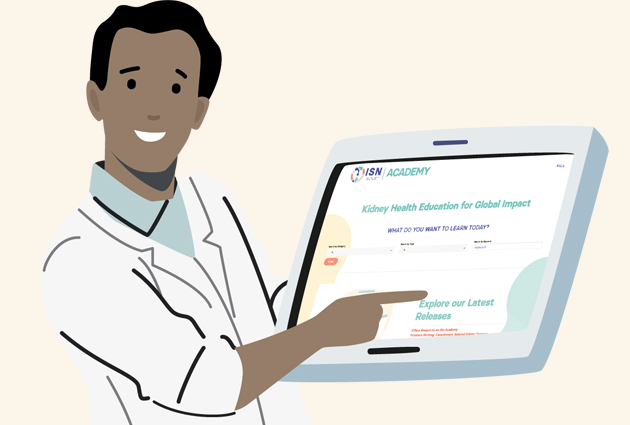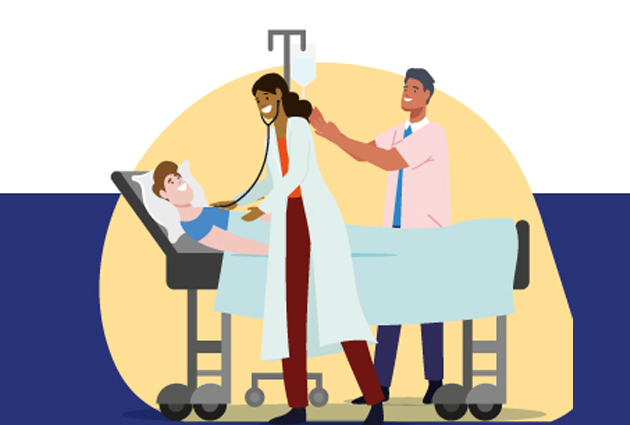The Younger Generation Takes a Stance: Inaugural Meeting of the WHO Youth Council
Members of the WHO Youth Council at their inaugural meeting at the WHO headquarters in Geneva in January
By Marina Wainstein, ISN Young Nephrologists Committee chair and Advocacy Working Group member
From January 27 to 30, the World Health Organization in Geneva hosted the inaugural meeting of the WHO Youth Council.
The council was created as a WHO network for stakeholders to amplify young people’s voices and experiences and harness and expand our expertise, energy and ideas to promote public health.
Twenty-two global health and non-health youth organizations, including the International Society of Nephrology, and a nominated representative were selected to join the council.
Organizations serve a two-year mandate, after which new organizations are invited to join the council, ensuring continued inclusivity, diversity and fairness. The ultimate goal of the Youth Council is to raise the profile of youth contributions to public health at every level by driving a global advocacy initiative that is entirely designed and conceived by young people.
On the first day, Dr. Tedros, director-general of the WHO, reminded us that kindness must be at the heart of everything we do and that it is our mindset, our willingness to re-frame questions and challenges, that will ultimately determine the fate of our battles.
Later, the WHO Communications team, led by Gabby Stern, stepped in to welcome and walk us through how the WHO frames and delivers messages, announcements, calls to action and initiatives to its member states and the public.
After lunch at the WHO cafeteria, we mingled with various WHO departments who had expressed an interest in interacting with us as a council and as individual organizations. I spoke at length with the WHO’s Primary Healthcare and Compassionate Leadership department representative about the importance of incorporating kidney disease detection and screening in high-risk populations, citing the gaps established in the Global Kidney Health Atlas.
The representative from the Pharmaceutical Pricing department was similarly aware of the gaps in transplant affordability and essential blood pressure medications for people with kidney diseases in low and middle-income countries.
The second day brought inspiration in the form of our working group sessions. We split into four working groups and chose the following topics: universal health coverage (UHC), meaningful youth engagement (MYE), mental health (MH) and non-communicable diseases (NCDs).
Naturally, as a kidney doctor and advocate, I joined the NCD group alongside representatives from NCD Child, Cancer Europe, Commonwealth Youth Health Network, the Young Professionals Chronic Disease Network (YP-CDN) and Youth for Road Safety (YOUR). We decided to focus on the commercial determinants of health (CDofH) and their role in developing risk factors for NCDs.
We felt that young people were especially vulnerable to the marketing tactics of commercial giants promoting unhealthy fast food, soft drinks, tobacco, and alcohol, as well as the pervasive effect of digital hyperconnectivity on a sedentary lifestyle.
Over the next three days, we put together a proposal to produce a video that would show these effects from a young person’s perspective. The film would target young people and policymakers alike. It would call on young people to express and share their views on how they feel targeted and what they want from elected officials to stop this.
Additionally, we asked that the video be disseminated widely through WHO channels and presented at the next high-level meeting on NCDs. When we presented our pitch to Dr. Tedros on day three, he thanked us for choosing this topic, reassured us that we had full logistic and financial support from the WHO, and asked us to consider starting a grassroots campaign if the video achieved momentum. We now have one year to scope the literature, refine our message, and produce a video. Time to get to work!
The final day coincided with the first day of the WHO Executive Board meeting. We overheard Dr. Tedros’ opening speech with multiple mentions of the importance of youth voices in policymaking. He encouraged member states to interact with us in the afternoon, stating, “We don’t need to engage [young leaders]…we need to partner with them.” This cemented our feeling that our point of view was valued and is urgently needed if policies and initiatives to tackle major global health concerns are to succeed.
As I said goodbye to my 21 new friends, I thought of a phrase often used to disempower young people: “Youth is wasted on the young.” Well, not in this crowd! We have everything we need to create change: passion, empathy, resourcefulness, and the disinhibition to question authorities and shift paradigms. Hopefully, this new partnership is the platform we need to carry our issues forward and make a difference toward achieving #HealthforAll.




